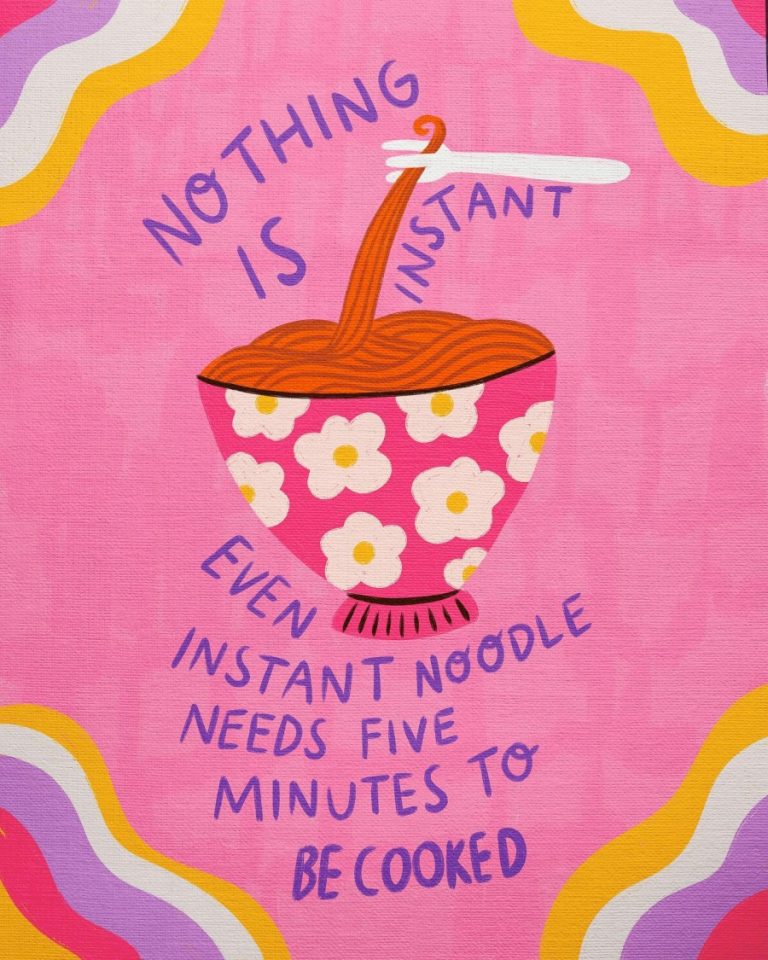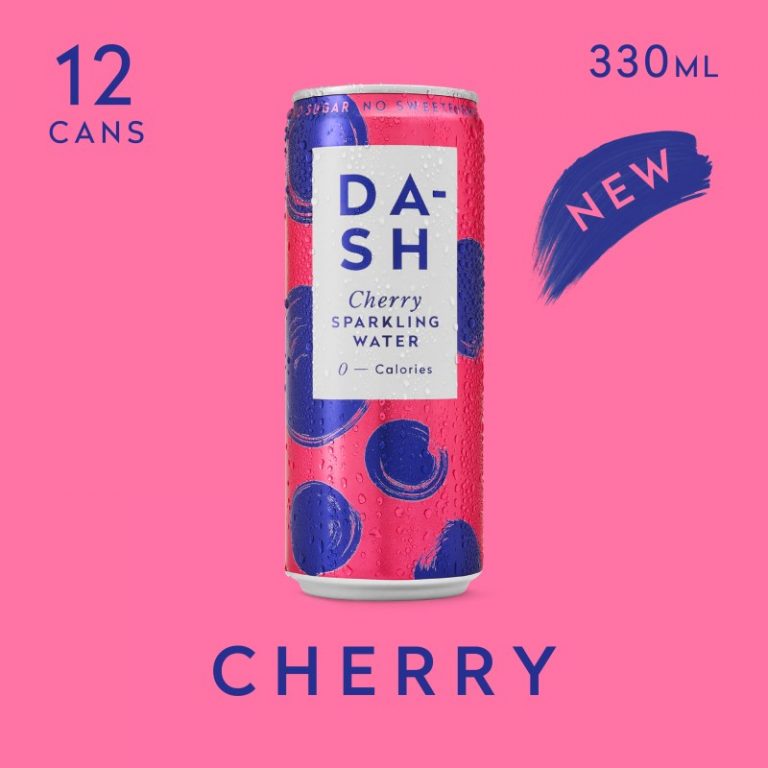
Heart-shaped vegan-cake! Rainbow Nourishments
Heart disease still affects around 1 in 4 people in England. But heart health does not require fancy diets, pricey powders or even a gym membership. The evidence is clear that a plant-based lifestyle with regular exercise (and not smoking nor drinking excessive alcohol) is the way forward.
For hereditary heart disease, switch donations to humane medical research (not the British Heart Foundation, which funds outdated and cruel animal tests).
Building a Plant-Based Plate
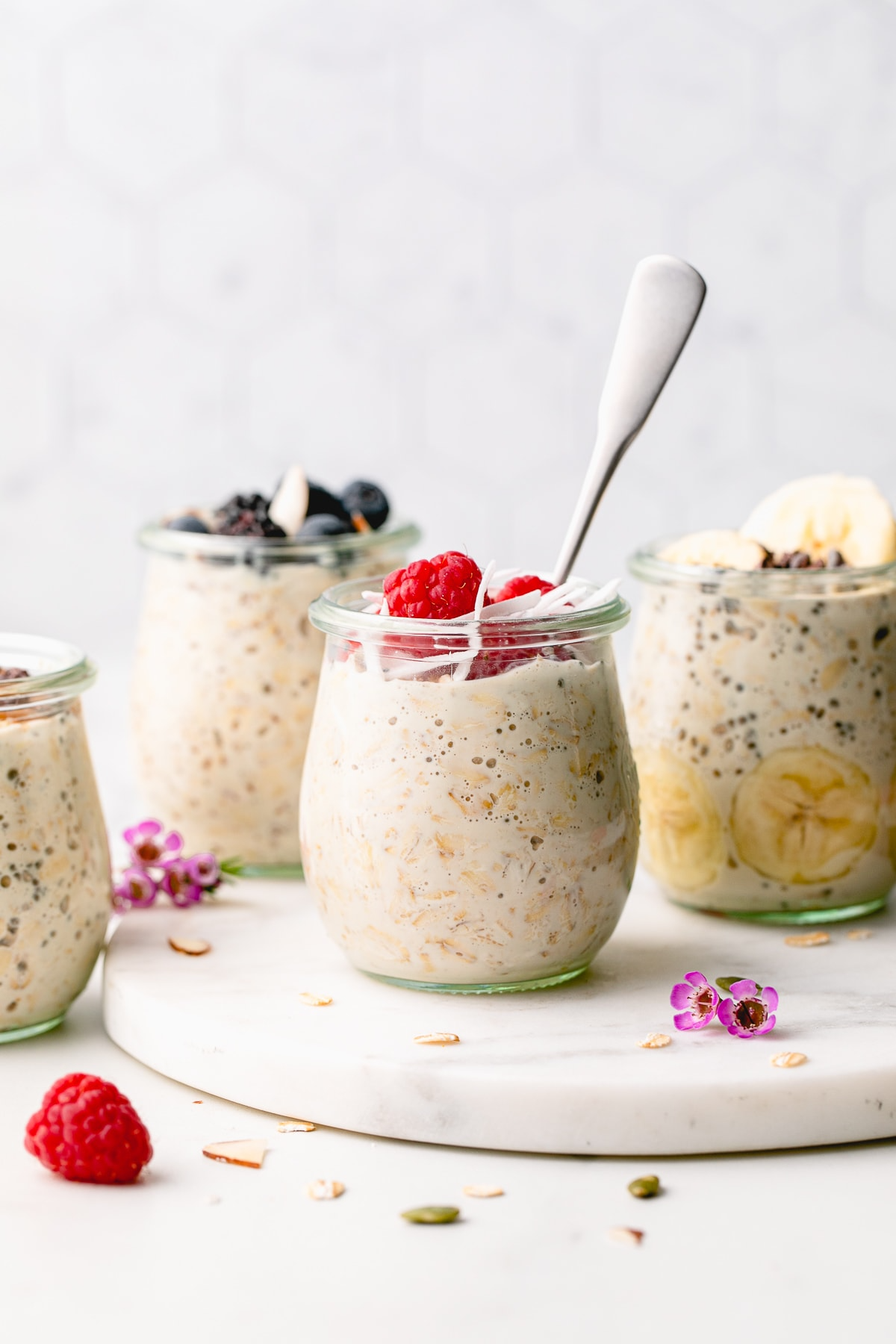
Health Overnight Oats (The Simple Veganista)
There are many vested interests that won’t tell the truth. But the evidence is clear that the best way for heart health is a plant-based diet (‘bad cholesterol’ is the main cause of heart disease – and plants don’t have cholesterol, as they have no liver!)
Big charities will tell you to eat ‘less cholesterol’. But if you live on plants, you literally eat no cholesterol at all (and your body can make ‘good cholesterol’ on its own). In the USA, some patients have literally reversed angina through diet alone, as proven with before/after photos on angiograms.
You may not wish to go this far (the patients had to give up oil too). But it’s an example of how a lot of our media recommendations are outdated. Find out more at Physicians Committee for Responsible Medicine. This organisation’s ‘plant-based prescription is simple:
- Replace meat with beans, tofu, tempeh, or lentils to improve heart health.
- Aim for at least two servings of fruit and three servings of vegetables daily.
- Keep saturated fat intake as low as possible by avoiding animal products, ultra-processed foods, and tropical oils, such as coconut oil and palm oil.
If you change your diet and do it very vigorously, you have enormous power. You can reverse heart disease. You can prevent it. Neal Barnard MD (President, PCRM)
The Esselstyn Heart Disease Program (Dr Caldwell is the cardiologist who reversed angina in patients through diet – he’s still thriving at 91). His son Rip (a former firefighter) writes heart-healthy cookbooks.
5 of the 24 patients in Dr Esseltyn’s initial study were told (by cardiologists) that they had less than one year to live. Over 12 years later, they survived (without heart disease symptoms). In fact, their symptoms diminished and sometimes disappeared within 8 to 12 weeks of starting the program, with dramatically lower cholesterol and no cardiac events (angioplasties, coronary bypass surgery etc). And patient angiograms showed a widening of the coronary arteries (reversal of heart disease).
If the truth be known, coronary artery disease is a toothless paper tiger that need never exist. And if it does exist, it need never progress. Dr Caldwell Esselstyn MD
Atherosclerosis is the main reason for heart disease, a build-up of plaque that narrows and eventually blocks the blood vessels. This plaque is made up of cholesterol (from animal foods), white blood cells, calcium and fibrin. Dr Gemma Newman (an Irish medical doctor) says the best prevention is to replace chicken with chickpeas in curry and switch to a wholefoods plant diet.
You may notice a bit of change (farting!) at first as your body gets used to fibre, but benefits will soon be evident.
Animal foods have no fibre, plants do. So when fibre binds to LDL cholesterol in your gut, it kind of ‘sweeps’ out of your body, which helps reduce risk to your arteries. A few everyday examples help.
- A bowl of porridge with oats, berries, and a spoon of ground flaxseed.
- A salad with chickpeas, quinoa, rocket, olive oil, and lemon.
- A chilli with beans, tomatoes, peppers, and brown rice.
- A baked potato with hummus and a side of steamed greens.
I don’t understand why asking people to eat a well-balanced diet is considered drastic. While it is medically conservative to cut people open or put them on powerful cholesterol-lowering drugs for the rest of their lives. Dr Dean Ornish MD
Top Plant Foods to Nourish Your Heart
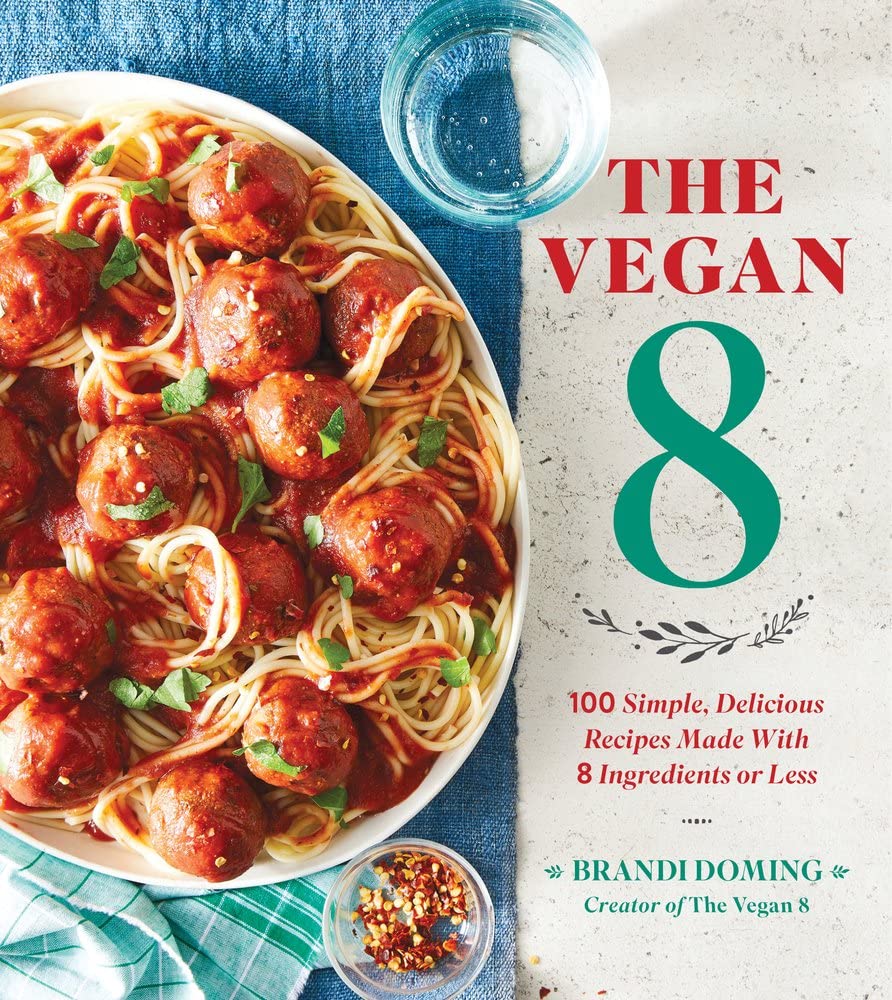
The Vegan 8 is a fabulous book of no-oil vegan recipes (Brandi does use fats, just no refined oils). These gluten-free recipes are all super-tasty too. The author created them, to help heal her husband’s gout, when doctors say they couldn’t do anything. As the title suggests, all recipes have 8 or less ingredients (bar water, salt and pepper).
Check medication, as some can interact with vitamin K from green leafy veggies and grapefruit. Read our post on food safety for people and pets.
- Berries: Blueberries, strawberries, raspberries. Rich in antioxidants that help protect blood vessels from oxidative stress. A small bowl on porridge or plant-based yoghurt, or a handful as a snack, beats a sugary dessert.
- Nuts: Almonds and walnuts bring healthy fats, plant protein, and minerals. These support healthy cholesterol patterns. A small handful, around 30 grams, is enough. Choose unsalted and unroasted where you can. Real nuts are better than oil (refined).
- Leafy greens: Spinach, kale, rocket, and chard add potassium and nitrates. These can help relax blood vessels and support lower blood pressure. Add a couple of handfuls to soups, stir-fries, or omelettes.
- Whole grains: Oats, brown rice, wholemeal pasta, and quinoa offer fibre for steady energy and cholesterol control. Oats bring beta-glucan, which helps lower LDL. Aim for a fist-sized portion cooked.
- Legumes: Lentils, chickpeas, black beans, and peas deliver protein, iron, and fibre without saturated fat. A cup cooked can replace minced meat in many dishes. They leave you full and support a healthy weight.
Watch out for vegan junk food. A plant label does not make a product heart-friendly. Check for high salt, added sugar, and long ingredient lists. Use these foods as the rare treat, not the daily base.
Move Your Body for Heart Health

Your heart is a muscle. It grows stronger with regular, steady work. Exercise improves circulation, supports healthy blood pressure, and lifts your mood. It also helps manage weight, which reduces strain on the heart.
Check with your GP before starting an exercise program, if you are older or have heart issues.
A good ballpark is 30 minutes walking or cardiovascular exercise 5 times a week, and 2 or 3 days strength training. What’s good is to simply incorporate gentle exercise into daily life, whether that’s gentle walks after dinner, swimming a few times a week, or even yoga classes at the local community centre.
A simple weekly plan might look like this.
- Monday: 30-minute brisk walk.
- Tuesday: 30-minute cycle.
- Wednesday: Rest or gentle stretching.
- Thursday: 30-minute brisk walk.
- Friday: 30-minute swim.
- Saturday: 45-minute countryside walk.
- Sunday: Rest, light mobility.
If that feels too much, start with 10 to 15 minutes and add five minutes each week. Keep the pace kind and steady.
Strength and Flexibility Moves to Support Long-Term Heart Wellness
Strength work supports a healthy weight and stronger bones. More muscle improves insulin sensitivity and daily stamina. Flexibility and balance reduce stress and help you move well.
Move it Or Lose It is a great exercise book for older people (or anyone who is not fit) that is sold alongside resistance bands (that give the same benefits as weights, but with less hassle). This organisation also runs exercise classes nationwide by qualified trainers.
Focus on form and breathing. If a move hurts, swap it or reduce range. Add a short warm-up, like marching on the spot, and a cool-down stretch. Schedule rest days and listen to your body to avoid injury.
Sustainable Supplements for Healthy Hearts
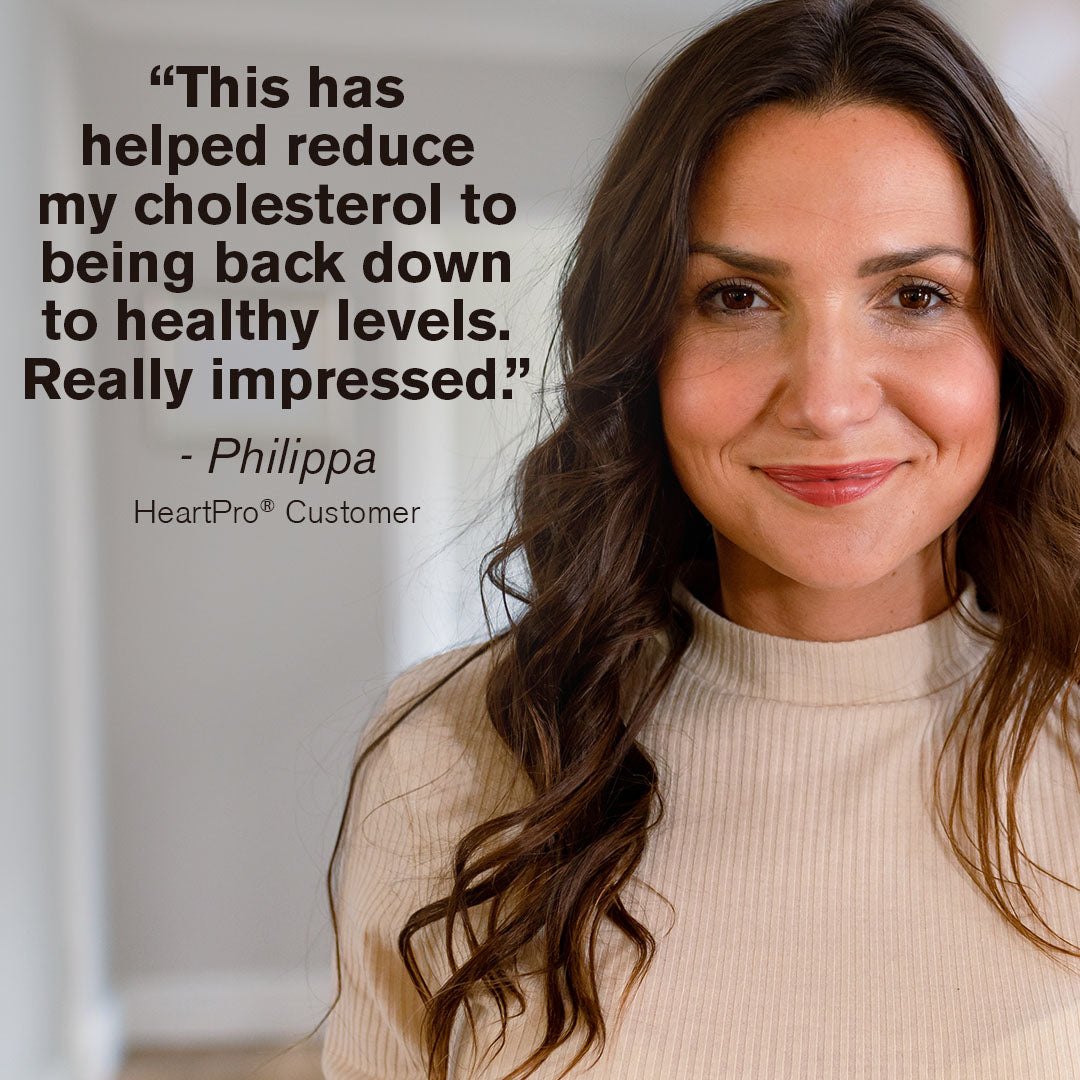
You don’t always need a supplement (and always check with your GP if already taking medication and/or supplements). But these supplements are formulated by experts with good reviews, and sold in sustainable packaging. Try some vegan recipes (all cholesterol-free!) for best results.
Dr Vegan Heart Pro is a clean formula that supports cholesterol balance, circulation, and daily heart vitality. Try some vegan recipes (all cholesterol-free!).
Potential Side Effects and When to Seek Advice
- Not suitable for people over 70 years of age.
- Do not use if you are pregnant, breastfeeding, taking medication (including for heart, liver or diabetes), or under medical care without speaking to a healthcare professional.
- Do not take if you also use cholesterol-lowering medication. Do not consume 3 mg or more of monacolins from red yeast rice a day from any source.
- Keep total daily intake of phytosterols from food and supplements below 3 g.
If you notice unusual symptoms, stop and speak to your doctor.
Key Ingredients and Their Heart-Supporting Roles
- Plant sterols: Support the maintenance of normal blood cholesterol by limiting absorption of cholesterol in the intestines. The beneficial effect is linked to a daily intake of at least 0.8 g of plant sterols or stanols.
- Black garlic: Provides antioxidants that help protect cells from oxidative stress, a common factor in cardiovascular ageing. It is gentler on the stomach than raw garlic and supports healthy blood flow.
- CoQ10: Fuels mitochondrial energy in heart muscle cells, which can help with stamina and day-to-day vitality. It also acts as an antioxidant in lipid membranes.
- Lactobacillus plantarum: A well-studied probiotic strain that can help shape the gut environment. A healthy microbiome supports lipid metabolism and inflammation balance, both relevant to heart health.
Other supportive nutrients include ginger extract for circulation and digestive comfort, chromium for normal blood glucose regulation, and B vitamins including B12 and folate to support normal homocysteine metabolism.
How to Take Dr Vegan HeartPro
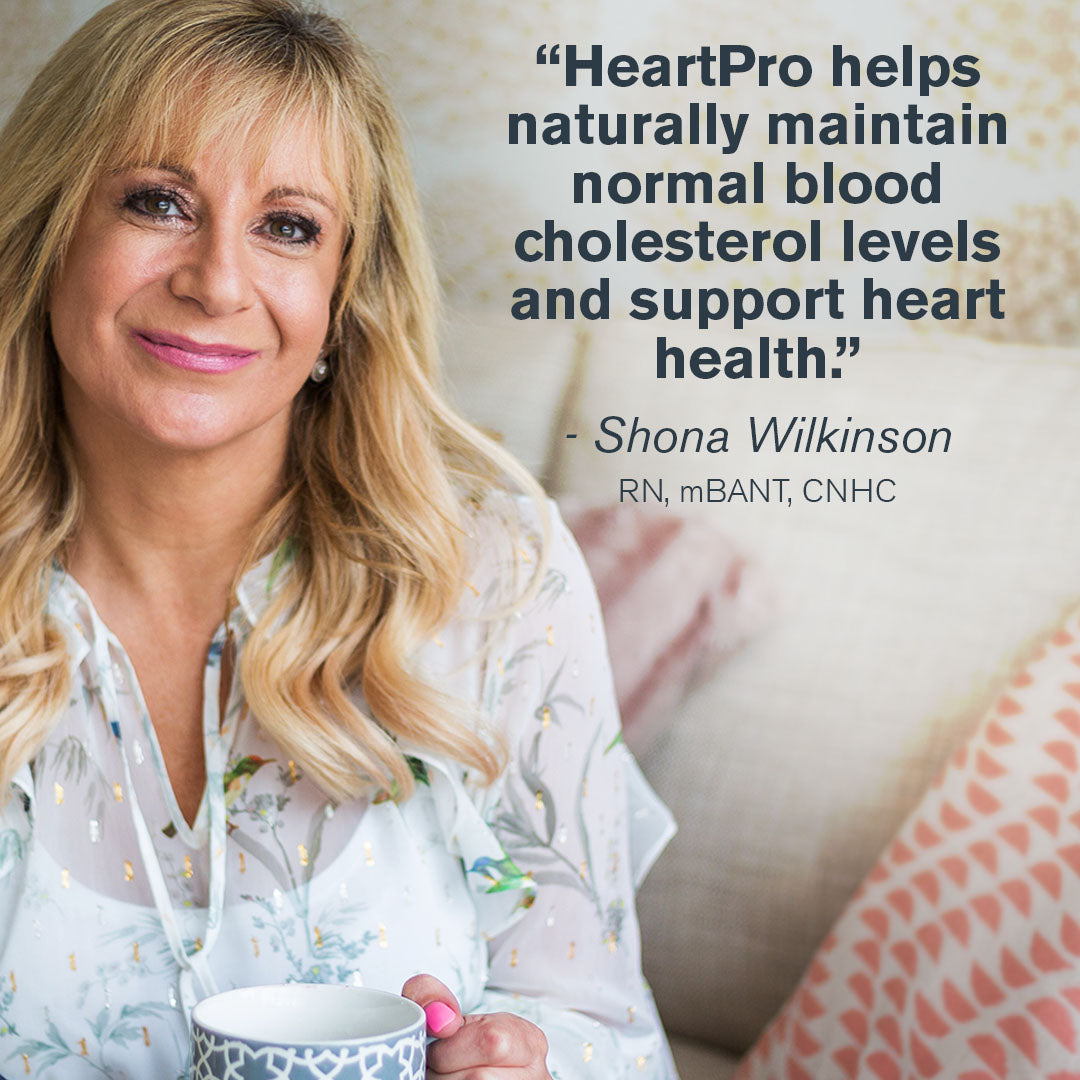
Take two capsules a day on an empty stomach, ideally 20 minutes before a meal. Use a cold drink, and leave at least 20 minutes before or after hot food or drinks, because live cultures are sensitive to heat.
Store the pouch in a cool, dry place away from heat and moisture. A frost-free fridge is suitable if you are unsure about room conditions. Expect steady changes over 3 to 6 weeks. Keep going for several months for the best picture of results.



